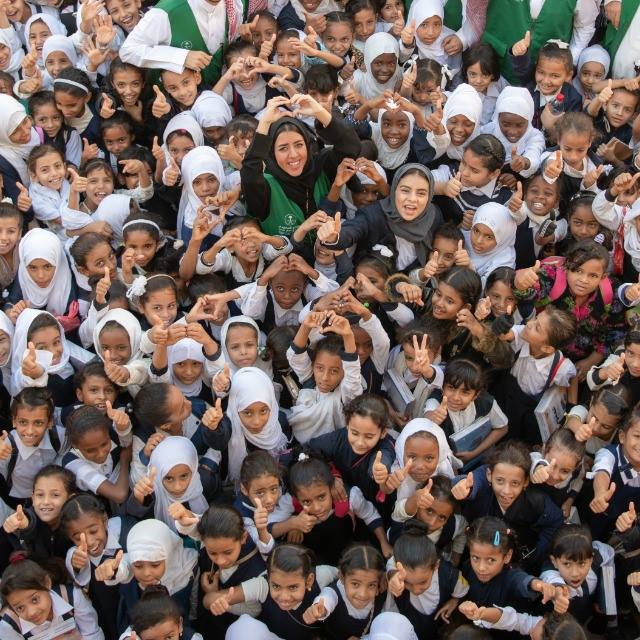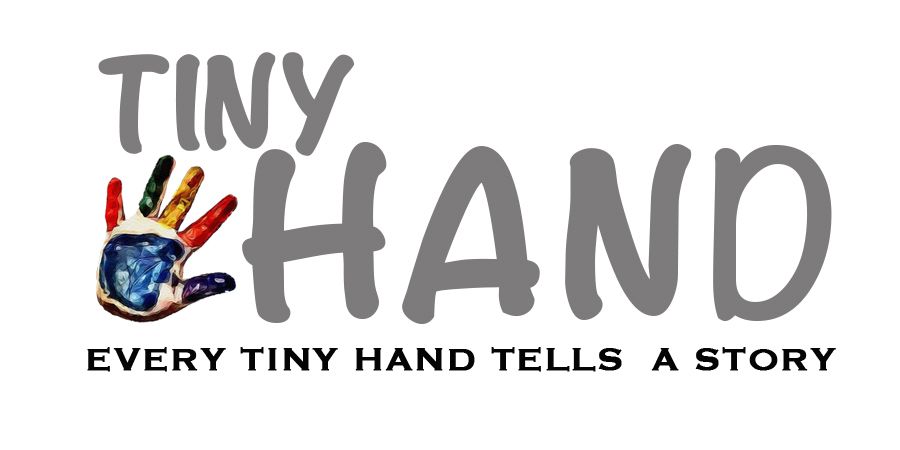Child Brides
Nada Al-Ahdal, the Yemeni Girl who said "No"!
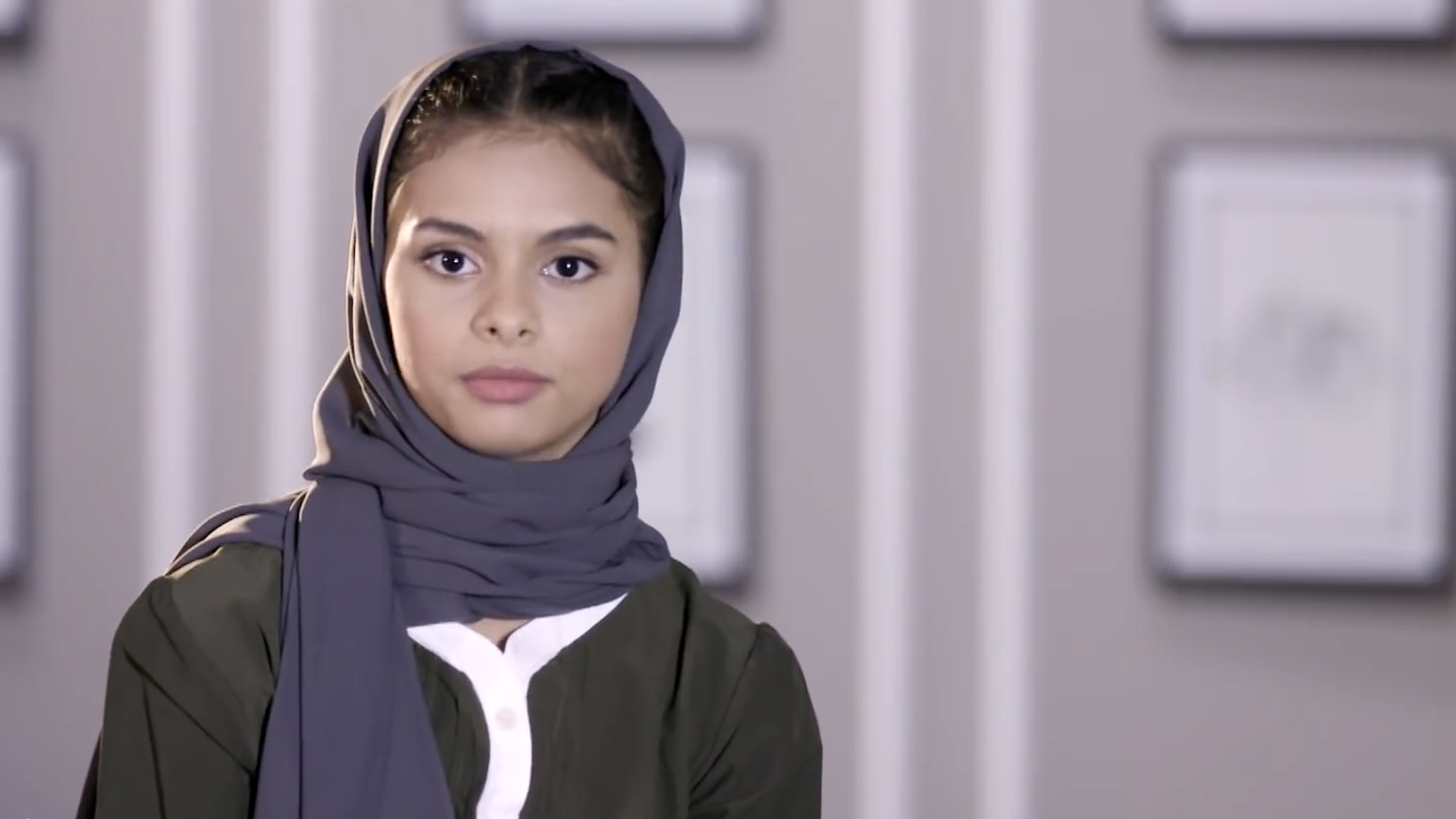
People continuously talked about the white bridal dress, but the scene of fire burning the bodies of both her aunt and her sister because of that dress turned the idea of wearing it into a terrifying story.
They told her: “Nada! Today, you will wear your wedding dress.” Such a phrase has changed the life of Yemeni girl, Nada Al-Ahdal.
When she was 11 years old, she refused to wear the bridal dress and decided to stand up against her society in which many people consider child marriage to be justifiable.
In this interview with Tiny Hand, Nada took us on a tour into her life, starting from Zabid town, Al-Hudaydah city, Yemen, where the wedding ceremony did not take place, to London, the British capital, across 7 years of her life.
The video that changed Nada’s life
She uploaded it at the age of 11
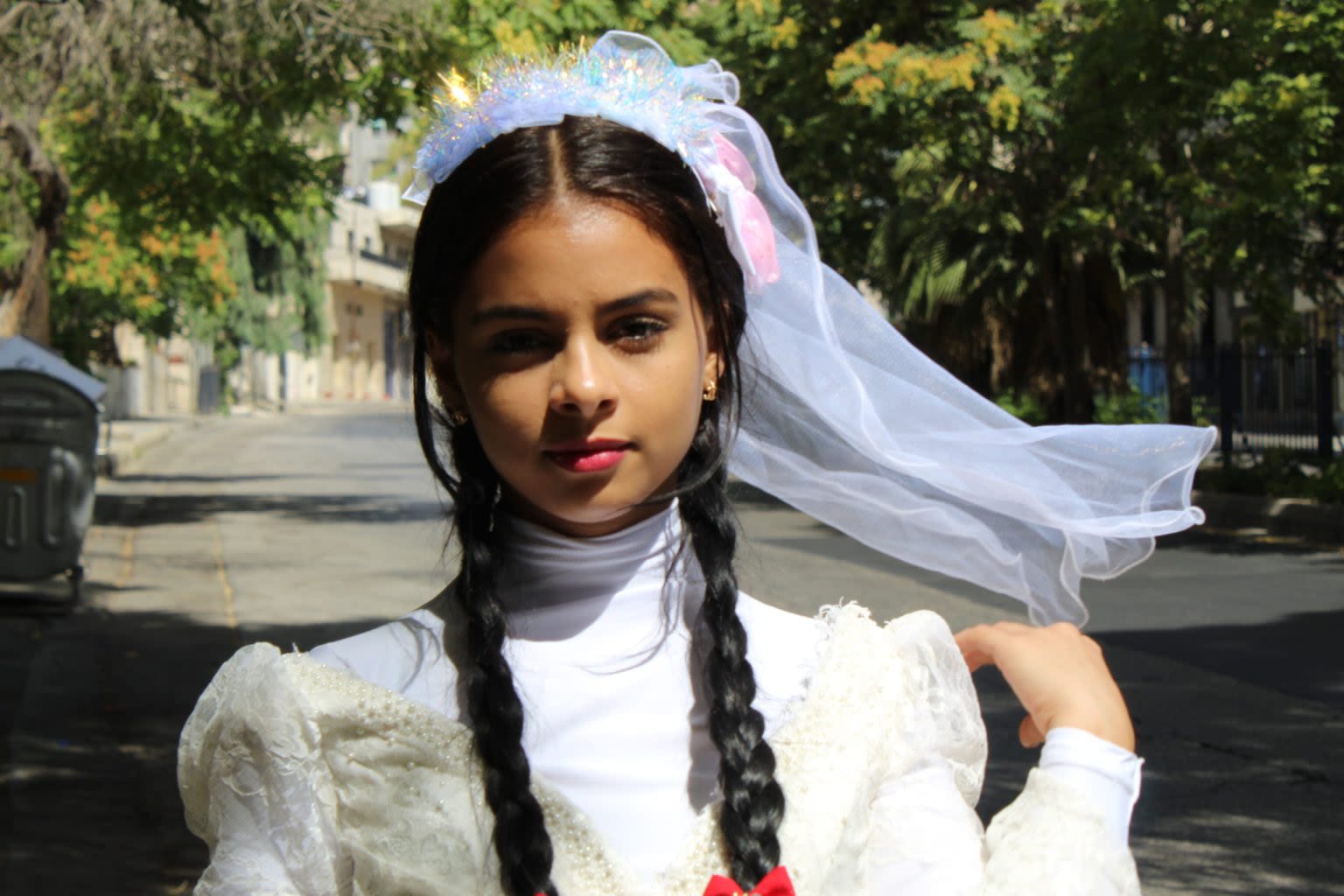
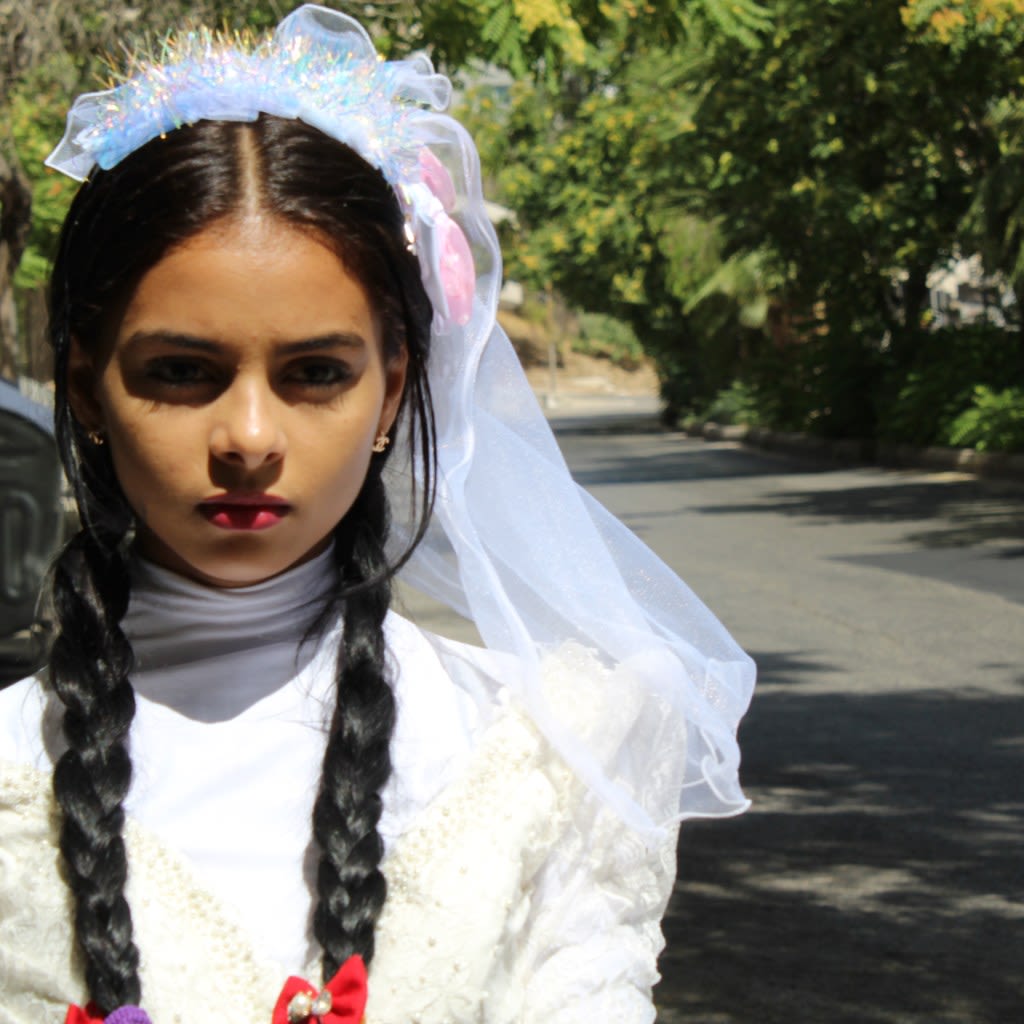
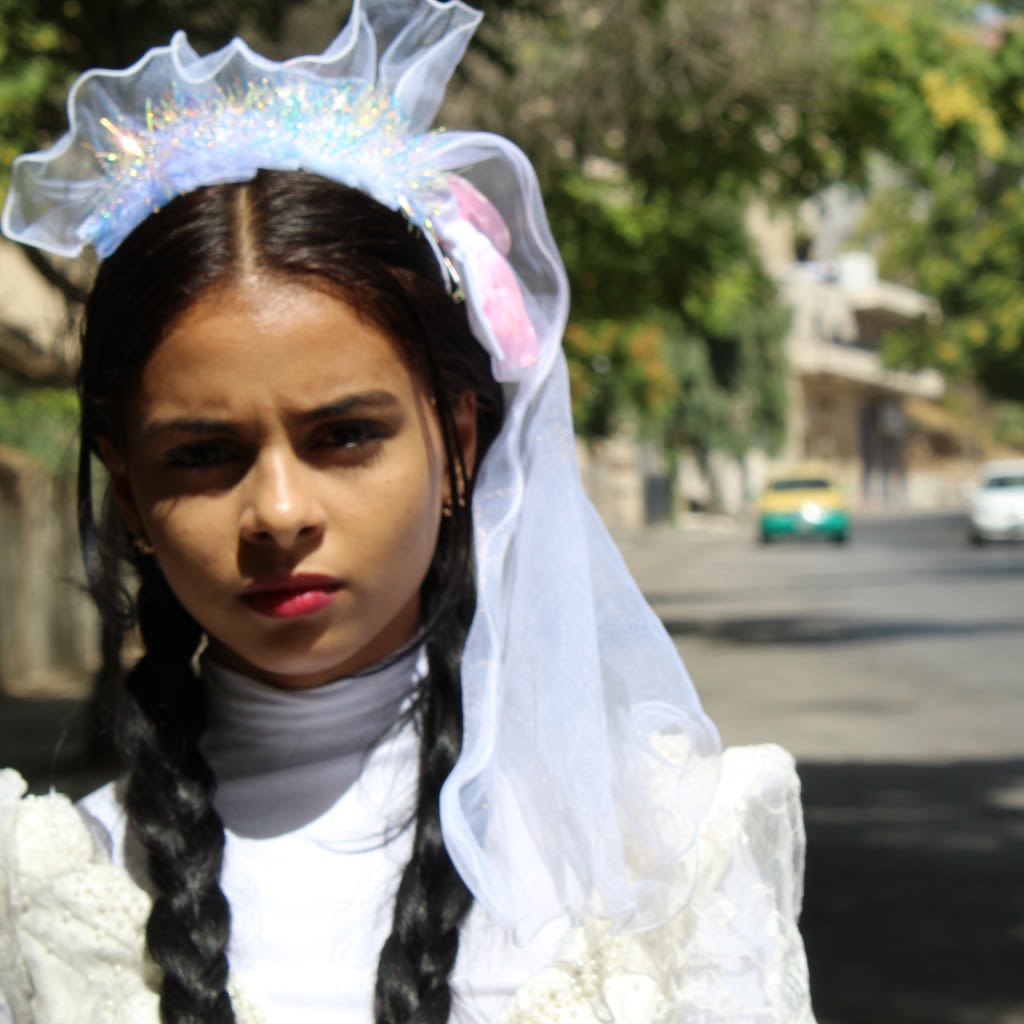
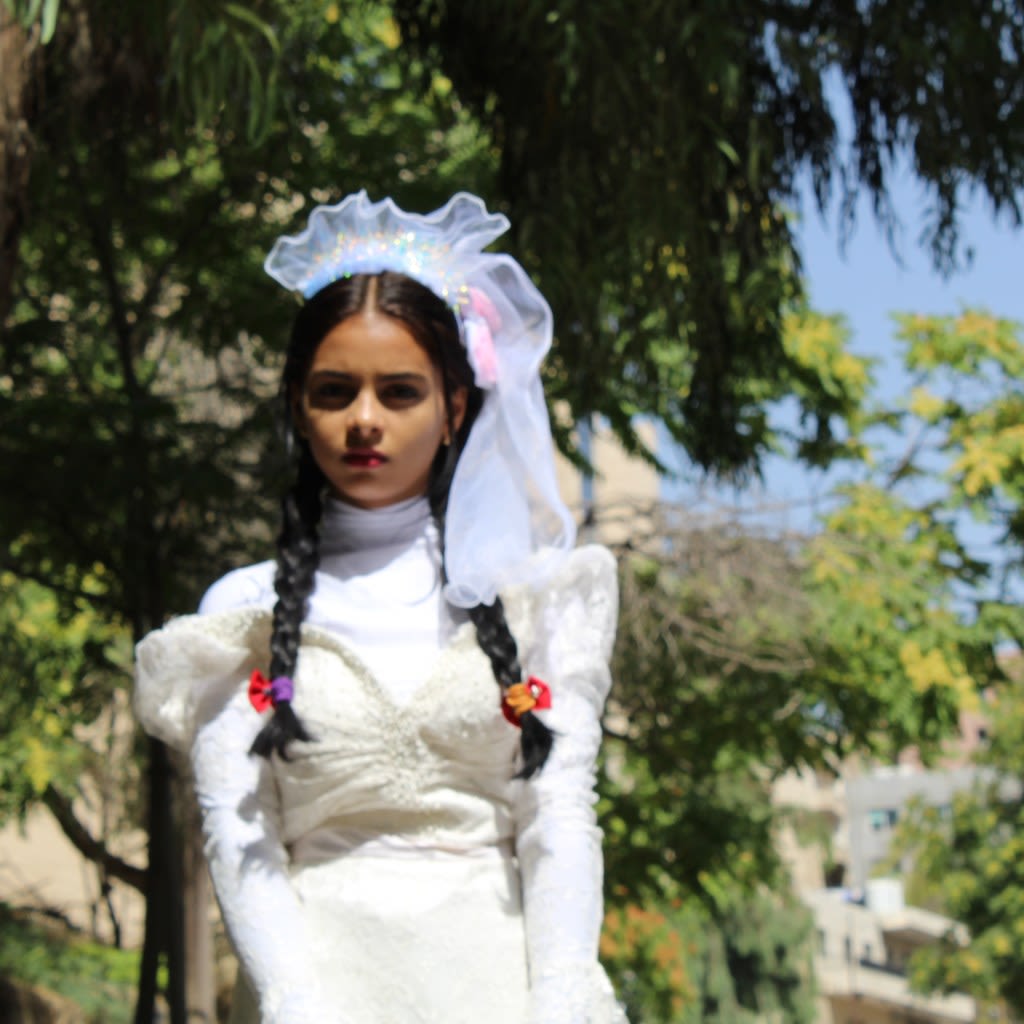
In the summer of July 2013, the weather was hot in the Yemeni town of Zabid. Summer is known to be unbearably hot for the people of that town. However, it was not as horrible as the words child Nada, a resident of this town, said in the two-minute video.
In the video, Nada talked about her escape from her parental residence in order to avoid being married off. She also spoke about her aunt who burned herself to death, her sister who also tried to burn herself to save herself from being married off, and many other girls who would prefer to die than to be married at a young age.
Describing that day to Tiny Hand, Nada aid, “When my sister burned her body and suffered serious burns, my family decided to introduce me instead of her to my fiancé, so I decided to flee, resorted to the Ministry of Interior and recorded this video in which I explained to the world everything I went through."
The video went viral so quickly, and many people sympathized with child Nada because of her spontaneous speech and the tears she was trying to hold back in her red eyes.
Coincidentally, she appeared in the video wearing a white dress, but it certainly was not her bridal dress because her wedding did not take place and was rather canceled.
For Nada, marriage was associated with the scene of her aunt who died at the age of 13. She will never forget her being covered in a white shroud with burns all over her face. "Such a scene haunted my dreams and turned into nightmares. It planted inside me a strong belief that I shall not allow this to happen again with any child forced into marriage," Nada said
Such a terrifying scene of her aunt will later continue to accompany her in all the stages of her life as she makes every effort to stand up against child marriage.
That summer, Nada spent her days in her uncle's house, hoping that her family would change their mind about marrying her off.
Controversy over child marriage is not new in Yemen
but conflict in the country has further compounded the problem and increased the rates of child marriage
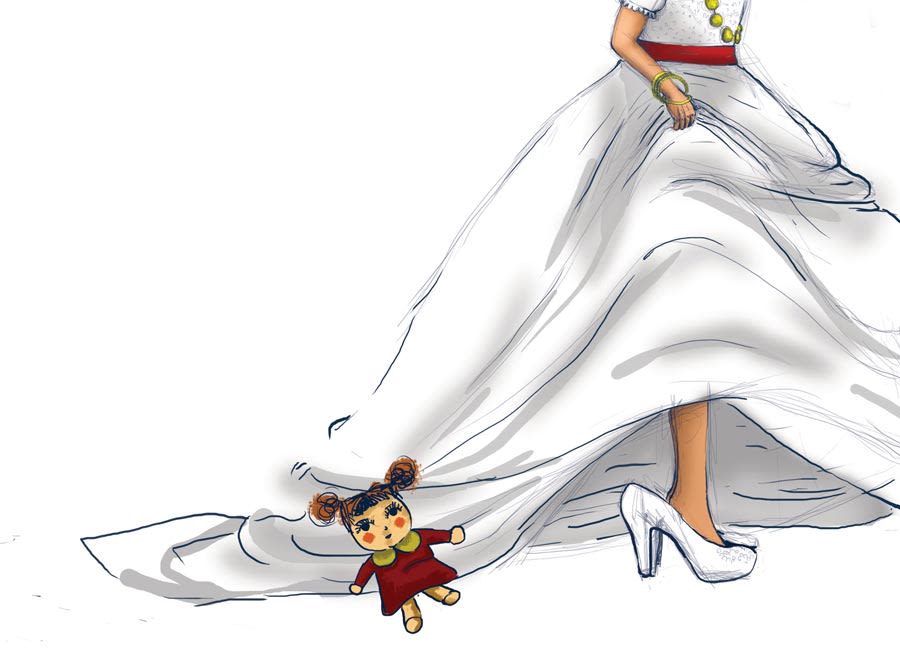
Nada, one year after her escape
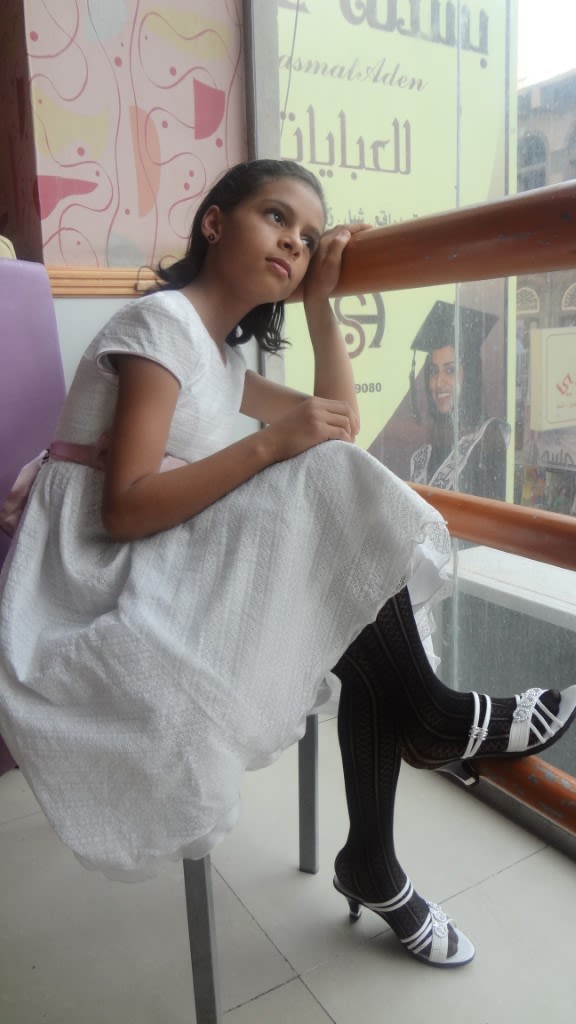
Nada's family was not happy with what happened. Her video in which she detailed her story has generated many views and won people’s sympathy. It made them unable to force her to marry.
Through an agreement made with her uncle, the child bride officially got divorced. Her father signed an undertaking not to marry her off before the age of 18. In addition, the Ministry of Interior transferred Nada’s legal responsibility to her uncle.
The conditions within that family were as turbulent as those in Nada’s country that has been witnessing war and conflict over power and rule.
For Nada, all such conditions do not matter. What is more important for her is that she fled the marriage about which she “does not know anything.” “The victims in my family made me feel in danger of death and that I am going to be the next victim.
However, I survived!” Nada said.
Now the time has come to improve the relationship with her family with her uncle’s help. After a year, the relationship between the girl and her family has fostered. Concerning this matter, Nada said, "With my uncle’s help, I could change my family's convictions about child marriage. Now, they are my substantial supporters in my campaign in defense of the rights of girls and women."
However, the stability within the family did not mean stability in her life at all, as she is still at risk inside Yemen.
In 2015, she and her uncle were kidnapped by al-Qaeda militants. It was 14 days of terror that Nada lived until they were released after the assassination of the former governor of Aden. At that time, members of al-Qaeda had to change their positions and released the prisoners.
Again, it is another survival witnessed by Nada. Details of such a story were published in the first chapters of La Rosée Du Matin which was translated into a number of languages and published by a French publishing house.
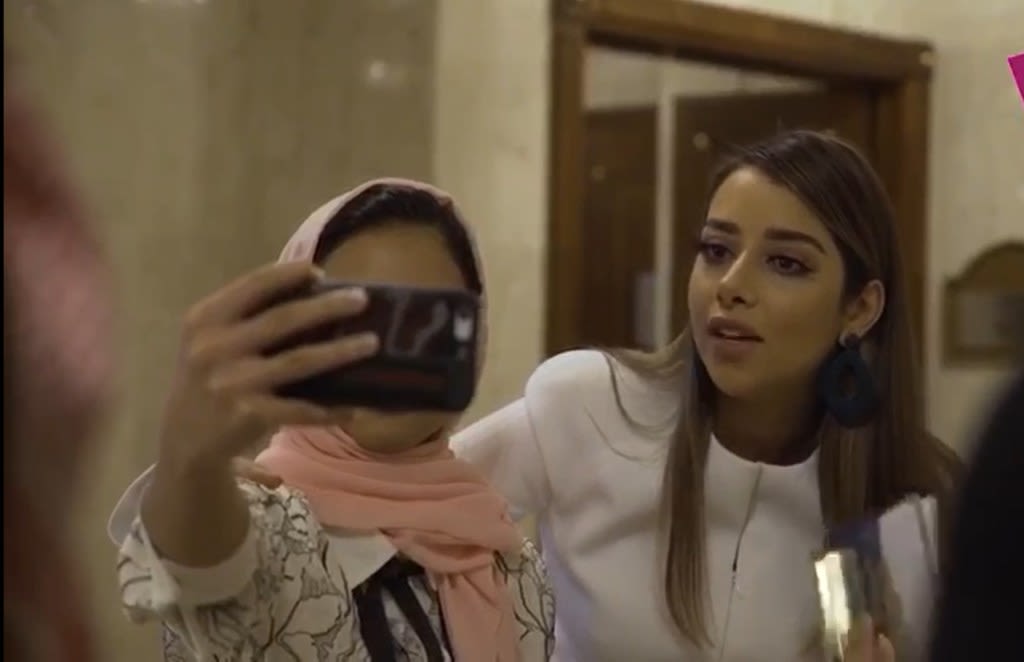
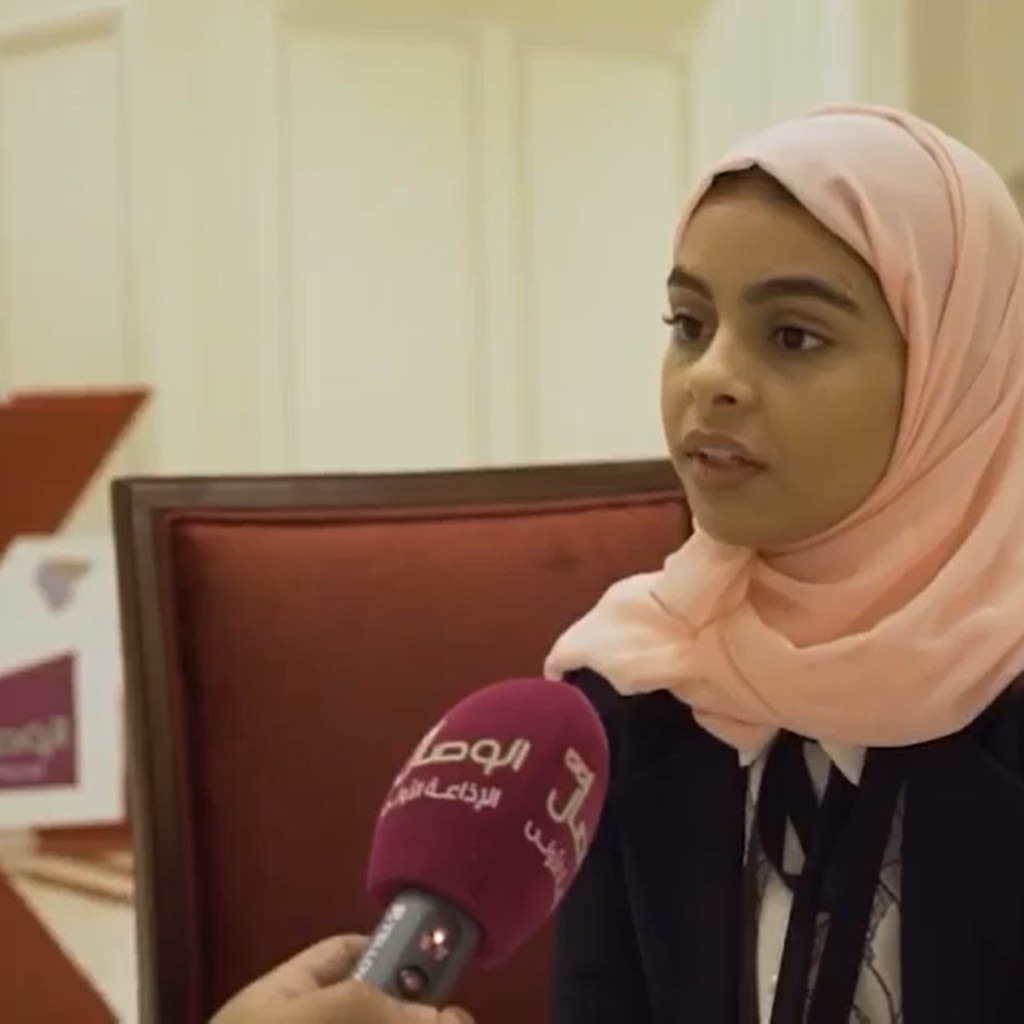
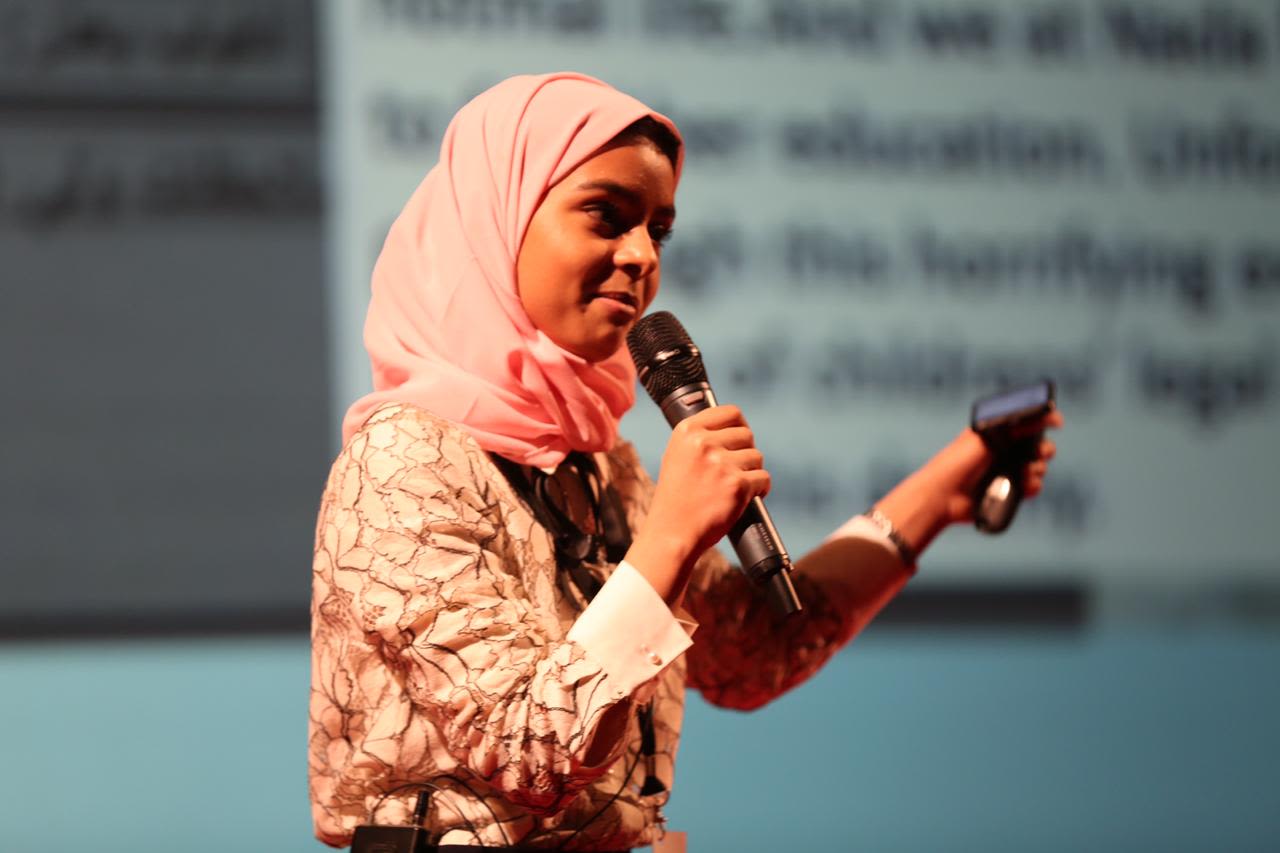
La Rosée Du Matin
The Voice of War Children
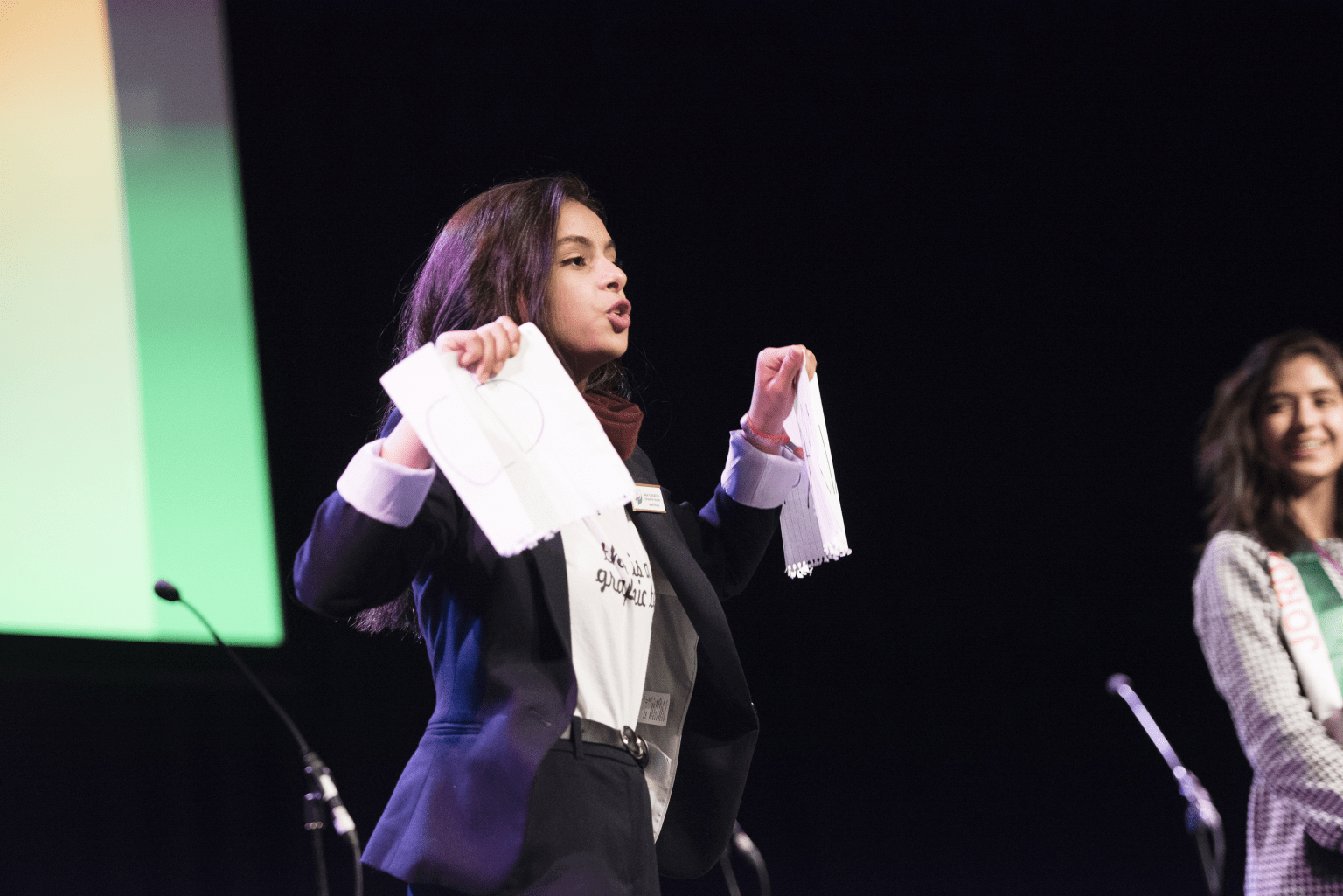
La Rosée Du Matin was not only Nada’s attempt to share her experience and help children like her. It also set up an organization in her name in 2017. Through this organization, Nada started three projects. Speaking about them, she said:
The first project entitled “Our Dreams Coming True” aims at teaching English to girls. Six hundred girls benefited from the project across 6 Yemeni provinces.
The second project entitled “Safe Havens” provides victims of child marriage or domestic violence with a place to feel safe and protected. Sixty-three girls benefited from this project.
The third project entitled “War Children Are Peace Ambassadors” is a media platform that raises awareness on the importance of the rights of girls and the risks of depriving them of going to school.
Through these projects, Nada’s institution won an award WITH AND FOR GIRLS, among the best organizations in the field of girls’ rights in the Middle East and North Africa in 2019, London.
"Perhaps this award was not granted to the entire team, but it gave us great hope and motivation to pursue and work for the sake of child marriage victims in Yemen," Nada said.
Nada believes that awareness is a key factor in saving girls from the violence they experience. According to her, “Over time, the society will be demanding and supporting the protection of girls and this is a great step."
Many people consider child marriage a normal thing, justifying it that it is the customs and traditions of society, and here lies the challenge. "This matter is unjustifiable and the phenomenon of child marriage must be stopped, regardless of its reasons. The issues that come up to my foundation are sensitive and we work to help the victims," Nada added.
Addressing all children being forced to be married off:
"Declare your refusal to all the family members, and ask for help either from them, from your relatives, your neighbors or your friends. Try to communicate with nearby organizations and search online for means of survival.”
Most countries are bound by the Convention on the Rights of the Child and the relevant laws of the United Nations and shall ensure their implementation.
The price of change needs to be paid. Society will not support me in my endeavors to change the unfair and outdated customs and traditions,” Nada
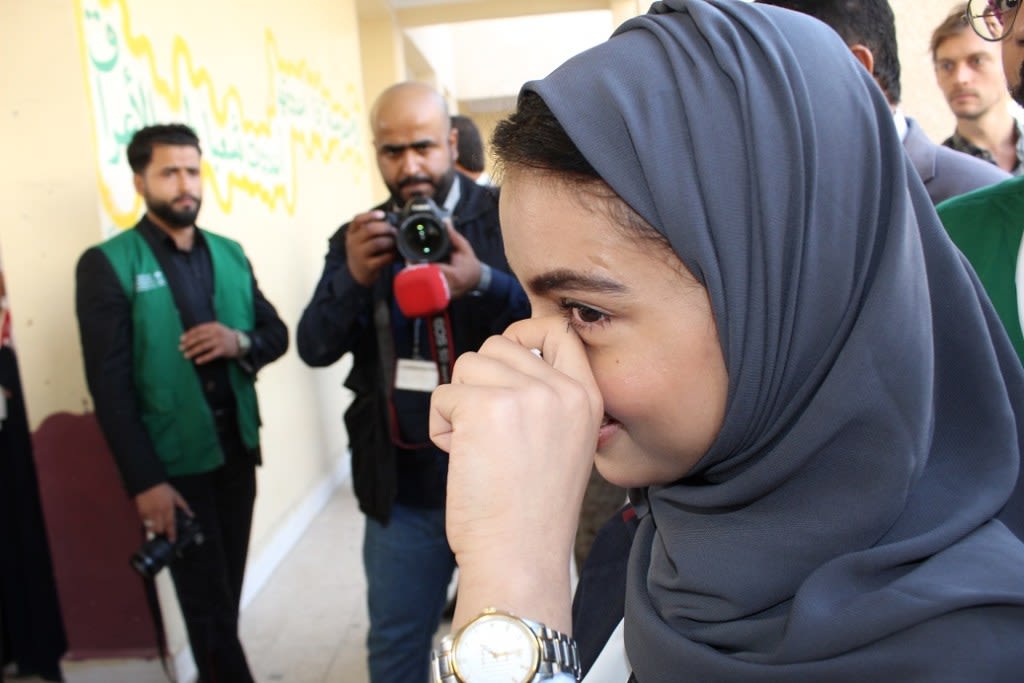
Why does every single second count for girls at risk of child marriage?
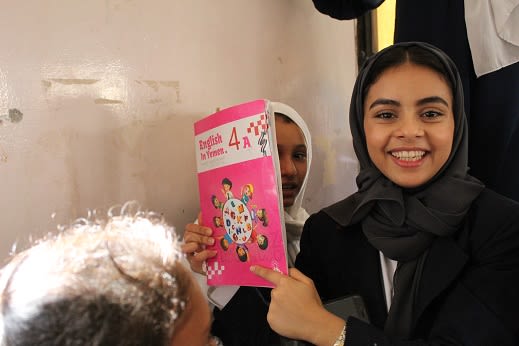
The chronic poverty in Yemen, which has been increasing due to war, compounded the problem of child marriage, as roughly 24 million Yemenis depend on humanitarian aid. In 2017, the United Nations Office for the Coordination of Humanitarian Affairs (OCHA) reported that 52% of Yemeni girls and women have been married off before the age of 18.
Between 2017 and 2018, OCHA reported a threefold increase in child marriage under the age of 18.
The United Nations Children's Fund reported that encountering the increasing poverty, parents could not afford to support their children financially and believe that the husband's family could provide better protection.
It should be taken into account that the Personal Status Law in Yemen stipulates that the minimum age for marriage is fifteen. Even though, many families do not abide by it.
All these circumstances were clear and recognized by Nada. She said, "Every two seconds, a child under the age of 18 is being married off in the world. So, we should intensify our efforts and appreciate every single second in order to protect and secure for every girl her right to life and give her a chance for survival."
Every single second is valued by Nada as she pursues her dream of "seeing a world in which women and girls are having equal rights with men, have rights in their country through holding leadership positions, and take a part in the political and economic decision alongside the man, with whom they can participate in building the nation and stand up against ignorance, terrorism and violence."
In order for this dream to come true, today, Nada is keen to apply for a university to be specialized in the international law with a view to, according to her, “become one of the female lawyers who work to change global systems in line with peoples' lives so that everyone can enjoy dignity and respect.”
In addition, she will work on her foundation, "Nada Foundation", hoping it would one day become one of the most important organizations in the world and the most influential body in the universe that can contribute to changing the lives of women in societies adhering to outdates traditions.
Where is Nada today?
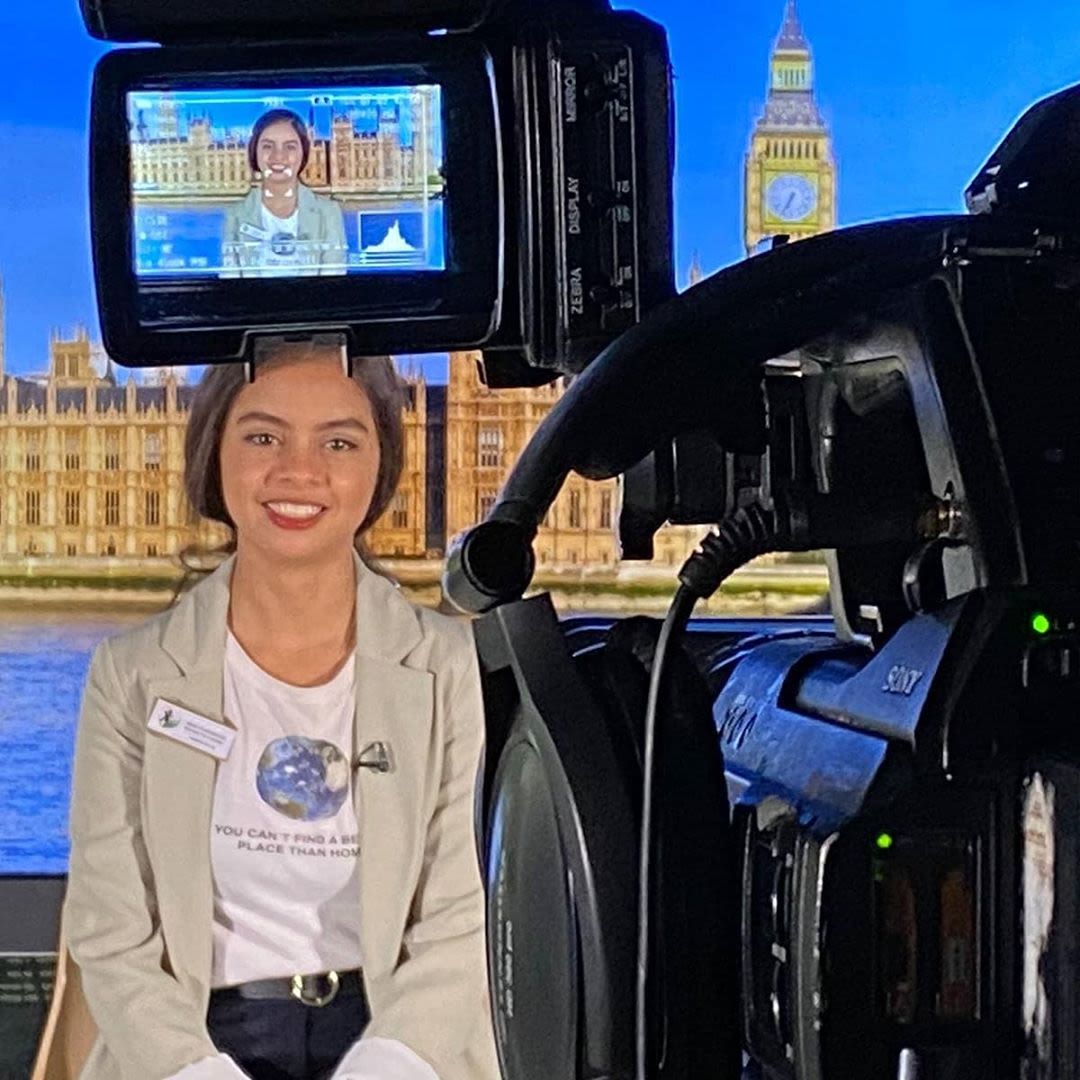
Thousands of kilometers away from her family's home, Nada lives in the British capital, London, where she studies at a high school. Nada is now seventeen years old and is going to study at the university during the next two years.
She seeks answers for many questions raised while reading books. "I try to understand life more profoundly and to realize why societies differ in their beliefs although there is one God. What pushes them to be intolerant of their religions and why each sect has hatred to those who differ from it," Nada wondered.
Perhaps these questions led Nada to be interested in reading religious books. In addition, she is interested in reading books on human rights and the development and prosperity of peoples.
Moreover, Nada said that she reads various books written by Nawal El Saadawi. "I hope I will be able to meet her one day," she said.
Like other girls, she is interested in social media, and according to her, she is keen to follow responses on every post she shares with her followers on various platforms, and tries to search for ways to reach them more and more and to influence them.
Furthermore, she pays more attention to her own country, Yemen, as well as to Syria, Libya and Iraq, such regions that have been suffering from war over several years. She said, "I hope to visit these countries after war ends there, in order to know more details about people's lives and how these countries have changed after all that they have gone through."
The question in Nada’s mind for which she looks for an answer is: Will the customs and traditions of people in the Arab region change after the war ends, as it happened in other countries in the world after the end of the World War II, or in Japan after the explosion of Hiroshima bomb, or will they pursue its old methods that led the region to war and destruction? “All this inspires me and encourages me to search for answers,” Nada emphasized.
Nada told Tiny Hand that "success is the fruit of perseverance, persistence, determination, and continuous work.” “Success is not what we gain in life. Rather, it means living hundreds of years after our death, and leaving behind a mark in the life of humanity by changing people’s lives and culture. Success is not limited to our worldly life."
It is a complicated fact shaped by a young girl who has achieved success because she simply said "No"!
